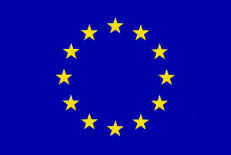Today’s forest management decisions affect Europe’s ability to respond to the climate crisis in the long term. Because of forests’ enormous potential to absorb and lock up carbon as they grow, current forest practices will determine the continent’s climate change mitigation capacity throughout the next decades. And the latest science paints a positive picture in case better practices become mainstream: improved sustainable forest management can double forests' climate change mitigation impact by 2050. Still, crucial questions on how to manage existing forests for enhanced carbon capture, where and how to grow new forests and how to adapt to more frequent disturbances remain partly unanswered by science, unaddressed by policies and unexplored by carbon offsetting schemes.
To deliver meaningful knowledge and applicable solutions, the INFORMA Horizon Europe project (Science-based integrated forest mitigation management made operational for Europe) will pair up technological tools such as satellite imagery, data mining and climate modelling with participatory approaches. This way, INFORMA will bridge the gap between stakeholders working in the field and science, policy, carbon markets and society in general. All this while also considering the provision of other ecosystem services such as biodiversity conservation and various types of forest-climate interactions.
Running from July 2022 to June 2026 with a budget of €5.3 Million, the project is coordinated by the Valencia Polytechnic University in cooperation with 13 partners in 8 EU countries, including EFI. Through its five demonstration sites in Austria, Belgium, Finland, Romania, and Spain, INFORMA is active across Europe’s largest biogeographical forest regions, representing 96% of the EU’s territory and 94% of the EU’s forests. The aims of the INFORMA project are to:
1) Create and foster continuous interaction between different interested stakeholders (forest owners, managers, researchers, the forest industry, etc) at the regional scale to identify common problems and needs.
2) Quantify relationships between forest management types at local/regional scales and their biogeochemical (e.g., carbon and nitrogen cycles) and biophysical interactions (e.g., albedo, roughness and transpiration) with the atmosphere.
3) Identify and whenever possible quantify the environmental, technical, and socio-economic barriers and opportunities for forest-based mitigation and adaptation strategies
4) Propose tailored portfolios of best regional multi-purpose SFM practices adapted to regional conditions and circumstances
5) Recommend technical and economical improvements to existing carbon certification mechanisms for better integration of forest carbon and especially SFM into accredited practices.
6) Disseminate project results among decision-makers, forestry stakeholders and the general public
The main outcomes of INFORMA will be a set of guidelines, roadmaps, and policy briefs to support decision-making at European and global levels, and further society’s knowledge of the best available SFM practices. Four portfolios of best practice guidelines, adapted to different forest management objectives, will be developed to support policy decisions, and facilitate the implementation of sustainable forest management practices by practitioners.
EFI leads WP1 Information and knowledge transfer and co-leads WP6 Communication, Dissemination and Exploitation
More information at the project website: www.informa-forests.eu (last visited 7.11.2022)
Follow the project on Twitter: https://twitter.com/informa_forests and LinkedIn:https://www.linkedin.com/in/informa-forests/
INFORMA has received funding from the EU Horizon Europe Research and Innovation Programme under Grant Agreement No 101060309.
